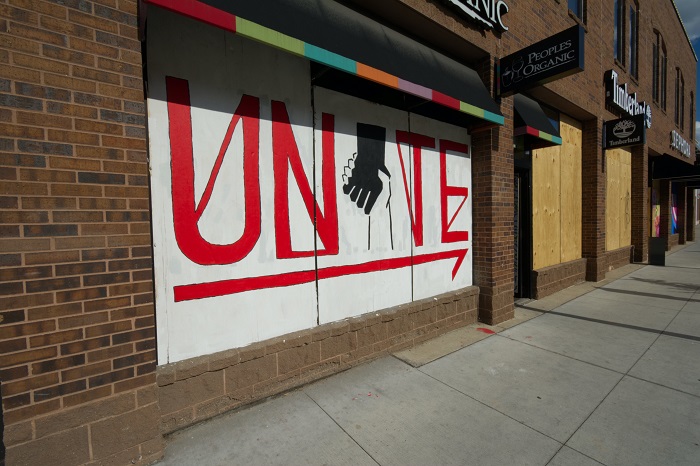- MN ABE Connect
- Archive
- How Can We Process Trauma and Tragedy with Our Students?
 April 19, 2021
April 19, 2021
How Can We Process Trauma and Tragedy with Our Students?
Wendy Sweeney, PANDA Manager Lori Yurick, PANDA AdministratorAs Minneapolis, the country, and the world are watching the trial of Derek Chauvin, charged in the death of George Floyd, 20-year-old Daunte Wright was shot and killed by police during a routine traffic stop last week.
When people see injustice, they may react with sadness and frustration followed by anger. Most people need some kind of resolution in response to injustice in order to prevent it from happening again. Sometimes anger can be productive if there can be peaceful resolution. Emotions may be raw for some people triggered by previous personal trauma, memories of George Floyd’s death, and the added shock of the death of Daunte Wright.
According to the Centers for Disease Control and Prevention (CDC), there are six guiding principles to a trauma-informed approach:
- Safety
- Trustworthiness & transparency
- Peer support
- Collaboration & mutuality
- Empowerment & choice
- Cultural, historical & gender issues
(Source: Centers for Disease Control & Prevention [CDC]. Retrieved from https://www.cdc.gov/cpr/infographics/6_principles_trauma_info.htm)
How can you process through this tragic event and how do you open discussion with your students?
 Acknowledge what happened. It is healthier to talk about the event rather than to ignore it.
Acknowledge what happened. It is healthier to talk about the event rather than to ignore it.- Create a safe classroom environment. Make it clear the class is a safe place to talk about the event and all should agree to keep information shared confidential.
- Ask your students if they would like to talk about it. Some may not be ready or willing to. For those who do not want to talk about it, ask them to take a break while you have a discussion with the students who would like to talk about it.
- It is okay to not be okay.
- Express feelings. There may be a variety of emotions people are going through. There may be a mixture of feelings, such as, anger, disappointment, fear, sadness, powerlessness, disbelief, and confusion. Ask each student to say one word to express a feeling about the event.
- Validate student feelings, such as saying, “I hear a lot of mixed feelings from all of you, which is normal under the circumstances. This is a difficult time.”
- Put things in perspective. Although this may feel like a big setback so soon after George Floyd’s death, you could point to signs that progress is being made. People are listening and seeking change and solutions to end racism and build equity.
- There is always hope.
- Focus on what you can control. When things seem chaotic and hard to understand, the world feels out of control. Do a group activity in which students brainstorm what they can and cannot control. Encourage students to focus their energy on what they can control.
- Talk about healthy options and choices in response to Daunte Wright’s death, such as peaceful protests, writing letters to leaders, visiting Daunte’s memorial, or reaching out to the family.
- Have a class discussion about implicit bias and systemic racism.
- Teach about respect for diversity and encourage resiliency skills. Ask students to share a time they were able to rise above a difficult situation.
- Refer students to a professional, if needed. Go to PANDA’s website for a list of free and low-cost mental health resources at https://pandamn.org/mental-health/resources-6/
For more ideas, please go to Resources to Help Educators, Adults Respond to Racism, Violence and Trauma on the Minnesota Department of Education website.
Newsletter Signup
Get MN ABE Connect—the official source for ABE events, activities, and resources!
Sign UpArticle Categories
- ABE Foundations/Staff Onboarding
- ACES/Transitions
- Adult Career Pathways
- Assessment
- CCR Standards
- Citizenship
- COVID-19
- Cultural Competency
- Digital Literacy/Northstar
- Disabilities
- Distance Learning/Education
- ELA
- Equity/Inclusion
- ESL
- HSE/Adult Diploma
- Listening
- Math/Numeracy
- Mental Health
- Minnesota ABE
- One-Room Schoolhouse/Multilevel
- Professional Development
- Program Management
- Reading
- Remote Instruction
- Science
- Social Studies
- Speaking/Conversation
- Support Services
- Teaching Strategies
- Technology
- Uncategorized
- Volunteers/Tutors
- Writing
